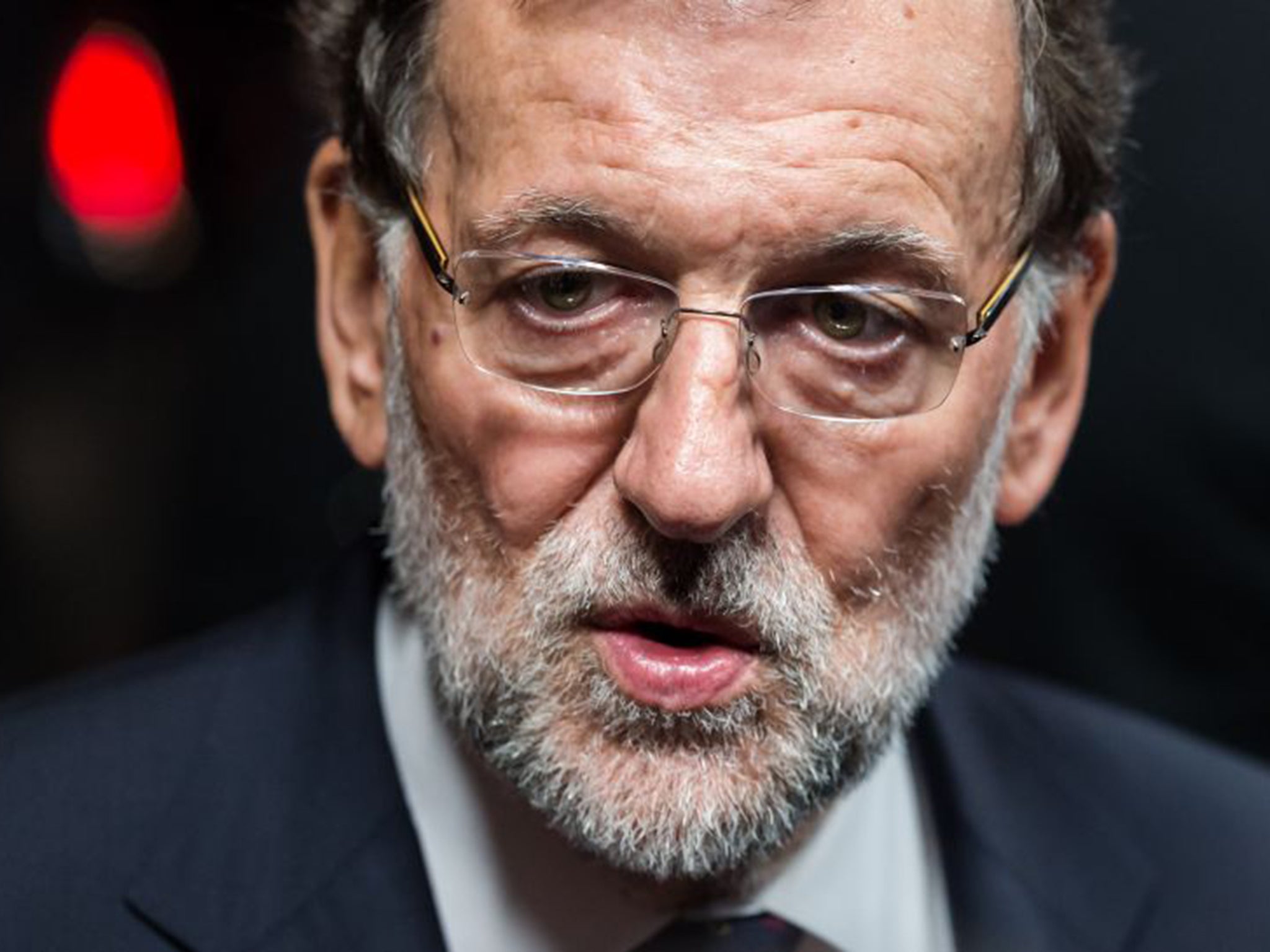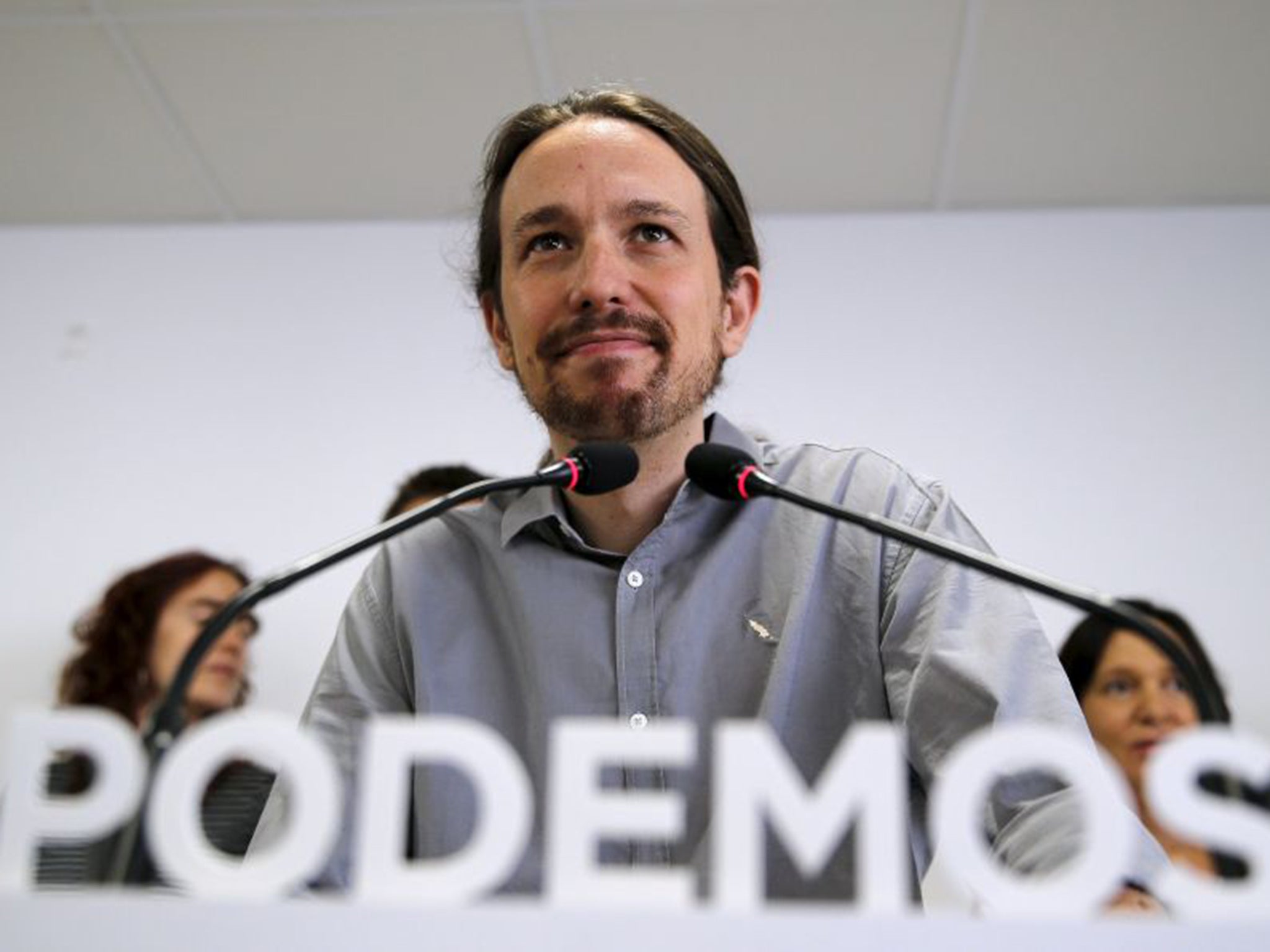Your support helps us to tell the story
From reproductive rights to climate change to Big Tech, The Independent is on the ground when the story is developing. Whether it's investigating the financials of Elon Musk's pro-Trump PAC or producing our latest documentary, 'The A Word', which shines a light on the American women fighting for reproductive rights, we know how important it is to parse out the facts from the messaging.
At such a critical moment in US history, we need reporters on the ground. Your donation allows us to keep sending journalists to speak to both sides of the story.
The Independent is trusted by Americans across the entire political spectrum. And unlike many other quality news outlets, we choose not to lock Americans out of our reporting and analysis with paywalls. We believe quality journalism should be available to everyone, paid for by those who can afford it.
Your support makes all the difference.Insurgent Spanish left-wing party Podemos has formed an alliance with other smaller parties to consolidate its support ahead of next months’ general election.
Podemos will stand under the “Unidos Podemos” (“United We Can”) umbrella which also incorporates the smaller United Left, Equo, and other minor leftist parties.
The alliance is a bid to unite scattered left-wing support ahead of a close-fought election where every vote is likely to count in the battle for first place.
Spain faces another general election on 26 June after parties were unable to form a workable governing coalition on the back of results late last year.
At the last general election the smaller socialist United Left (IU) party won just under a million votes – around 4 per cent of those cast.
It however won only two seats out of 350 in the Spanish chamber of deputies because Spain’s electoral system tends to marginalise the votes of very small parties.
If Podemos had been able to harness IU’s support at that election it would have come a strong second place and might have been able to form a coalition government.
The new alliance bodes well for the party, which has repeatedly won its best results in areas such as Barcelona where it has formed alliances with other parties.
All opinion polls conducted since the new electoral alliance was firmed have showed Unidos Podemos in a strong second place, significantly up from the general election after consolidating support from smaller parties.
A poll conducted by pollsters JM&A showed the new alliance on 25 per cent compared to 28 per cent for the centre-right PP and 20 per cent for the centre-left PSOE. Ciudadanos, a centre-right liberal party, trails on 17 per cent.

A survey by Invymark had the party on 24 per cent compared to 30 per cent for the PP and 20 per cent for PSOE. A poll by Netquest also had similar results.
If repeated at an election the mathematics of these results would likely give PSOE and Podemos a parliamentary majority together – though cooperation between the parties has previously stalled because of their differing views on granting an independence referendum for the region of Catalonia.
Over the border in Portugal the centre-left Socialist Party is governing in a similar arrangement with ad hoc support from the Left Bloc, Portugese Communist Party, and Green Party.
At the last general election the Partido Popular came first with 28.7 per cent of the votes, wihle the PSOE came second with 22 per cent.
Podemos came third with 20.7 per cent of the vote, while Ciudadanos trailed with 13.7 per cent.
United Left won 3.7 per cent of the vote, while smaller regionalist parties in Catalonia and the Basque country took the remainder.
The election was the worst result for the two main parties since the restoration of democracy after the death of General Franco and came after years of EU-enforced austerity policies which saw youth unemployment breach 50 per cent.

Join our commenting forum
Join thought-provoking conversations, follow other Independent readers and see their replies
Comments